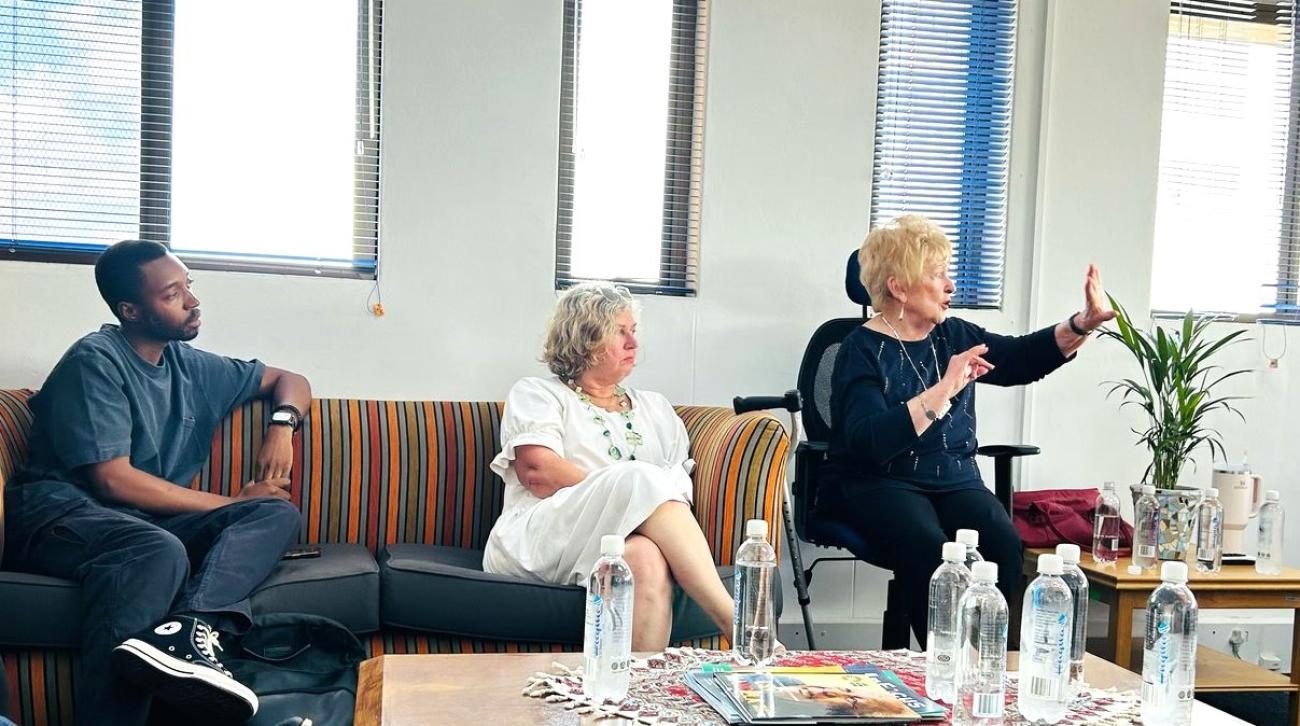Honoring the Past, Shaping the Future: The Power of Remembrance and Survivors' Voices
The United Nations in South Africa last week hosted a Zikaron BaSalon, an intimate gathering where Holocaust survivor Irene Fainman shared her powerful story of survival. Ms. Fainman courageously shared her harrowing yet inspiring journey of survival during World War II, offering a firsthand account of history that must never be forgotten.
Zikaron BaSalon, which translates to "Remembrance in the Living Room" in Hebrew, is an initiative designed to honor the memory of the Holocaust in a personal and meaningful way. These gatherings take place in warm, conversational spaces, where survivors reflect, and engage in open dialogue about the past, its relevance today, and the responsibility of future generations to remember.
At just six years old, Ms. Fainman’s life was shattered. She was forcibly taken from her home in The Netherlands, stripped of her family and security, and sent to concentration camps, where she endured unimaginable suffering. The horrors of war stole her childhood, exposing her to fear, loss, and relentless hardship. Yet, against all odds, she survived. In the final days of the war, she was rescued by the Swedish Red Cross, a moment that marked the end of her ordeal but not the end of her journey in remembering and sharing her story.
As she recounted her experiences, Ms. Fainman spoke of the profound trauma of losing loved ones, the unrelenting fear that gripped her as a child, and the strength that carried her through the darkest of times. With unwavering conviction, she emphasized the importance of keeping these stories alive, stating, "Survivors have a duty to speak, so that the world never forgets."
The conversation resonated deeply with UN colleagues, many of whom reflected on their own history and drew parallels between the Holocaust and South Africa’s apartheid era. One participant noted, "Hearing Irene’s story reminds us of the lasting scars of oppression.” The discussion also touched on the importance of breaking the cycle of generational trauma, with attendees acknowledging the need for healing, education, and active remembrance to prevent history from repeating itself.
When asked what inspired her to share her story with the world, Ms. Fainman spoke with honesty, acknowledging the pain of revisiting such memories, but affirming her commitment to truth and awareness. "Silence allows history to repeat itself. By speaking out, I hope to plant the seeds of tolerance and compassion."
The stories of survivors like Ms. Fainman serve as powerful reminders of resilience, courage, and the enduring human spirit. Their voices keep history alive. They ensure the atrocities of the past are never forgotten and that the lessons they impart continue to shape our world. Remembrance is not just about looking back. It is a call to action, a commitment to fostering tolerance, empathy, and justice in the present and future. As the number of Holocaust survivors dwindles, it becomes even more crucial to preserve their testimonies, passing them on to future generations as a safeguard against hatred and oppression.
By listening, learning, and sharing these stories, we honor the past while actively working towards a world that upholds human dignity, equality, and peace. The responsibility of remembrance belongs to all of us, ensuring that "never again" is not just a phrase, but a promise kept for generations to come.
Tali Nates, the Director of Johannesburg Holocaust and Genocide Centre, accompanied Ms. Fainman at the Zikaron BaSalon conversation with UN staff.





